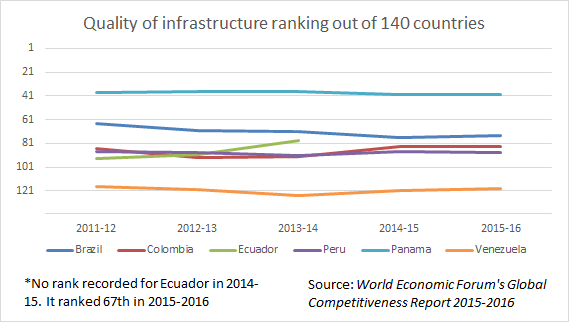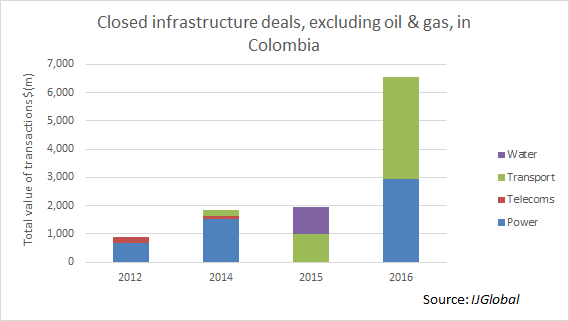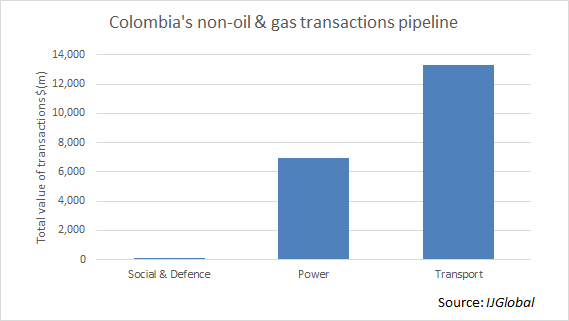Colombia’s referendum result
The result of Colombia’s referendum on a proposed peace accord with armed rebels, has been widely seen as bad news for investors. The government has been at war with the Revolutionary Armed Forces of Colombia (Farc) for 52 years, but hopes of an end to the conflict were dashed when 50.2% of voters rejected the peace deal on 2 October 2016.
Many investors responded to the referendum result this week by mass selling the Colombian peso, local equities and local currency bonds. The government will hope that the confidence of long-term investors, such as those involved in its growing infrastructure sector, has not been similarly shaken.
Development in Colombia has long been held back by instability caused by the Farc insurgency and the rampant black market drugs trade in its areas of influence. But slow infrastructure development is also prevalent in the wider region. Data from the World Economic Forum (WEF) shows that the overall quality of infrastructure in Colombia and its border neighbours has remained static in recent years. In its Global Competitiveness Report 2015-2016, WEF ranks Colombia 84th out of 140 countries for infrastructure. In 2011-12 it ranked 85th.
Though progress appears slow, the government has been trying to improve the situation. The country’s 4G roads programme has been gaining momentum, as reflected in the surge in transport projects reaching financial close over the last two years. This sector has long needed investment: WEF rates Colombia’s transport infrastructure as 104th out of 140 countries.
The 4G road concession plan was unveiled in 2013, and the government has looked to encourage investment in other types of transport projects. Though these projects will require significant capital expenditure, they are also predicted to drive economic growth in the country.
There are now almost $14 billion worth of transport projects in active procurement or financing, according to IJGlobal data, and the second wave of 4G roads has attracted increased interest from international investors, which is testament to the growing success of the programme. Many observers will hope that this momentum is not lost as the consequences of the referendum result become apparent.
Request a Demo
Interested in IJGlobal? Request a demo to discuss a trial with a member of our team. Talk to the team to explore the value of our asset and transaction databases, our market-leading news, league tables and much more.




